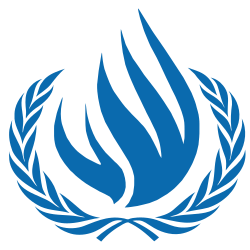For more than two years, the federal government and some PSUV[1] leaders have regularly criminalized the international cooperation (support) that political parties and non-governmental organizations receive in Venezuela. Their argument is that the funds received are used for conspiracy and to destabilize the government. In Provea’s[2] case, in particular, we should note that we have been receiving international cooperation funding for 21 years.
In the past, it did not occur to any government to categorize such funding as intentionally undermining the constitutional order. Past governments, of the so-called Fourth Republic, were as critical as is the current government of Provea’s annual human rights reports. In the past, as in the present, some officials were intolerant of denunciations of human rights violations. We have been doing this work for 21 years: promoting and fighting for the validity of and respect for the human rights of all; demanding and proposing public policies to strengthen democracy; partial to victims and accompanying them in their pursuit of justice.
For 21 years we have been fighting for social rights and against impunity and our work has been made possible in part thanks to the cooperation and support received from international non-governmental organizations (NGOs) and democratic governments.
We have never hidden these sources of cooperation and anyone who visits our website (http://derechos.org.ve) can not only obtain information on our funding sources, but also read and analyze independent audit reports of the organization. The amount and origin of this cooperation was known by governments of the Fourth Republic as well as by the current government as we regularly report to the Venezuelan Central Bank and the Seniat (Venezuelan tax authority). Other Venezuelan human rights NGOs also publish and report on the origin of their funding.
The Venezuelan government knows very well that cooperation in the international arena is a normal part of relations between nation states as it is an active participant in international cooperation and support and provides funding to governments and civil society in other countries.
 Image via Wikipedia
Image via WikipediaThanks to international cooperation, Provea has been able to rely on a multidisciplinary team and, among other actions and activities, has not wavered in:
1) attending to military prisoners—and their family members—resulting from the attempted coups d’état of February 4 and November 27, 1992 (these military prisoners included President Chavez);
2) making legal pleas for Tarek William Saab in the coup d’état of 2002 and consulted;
3) closely observing the human rights situations of officials persecuted by the brief Carmona government;
4) making immediate statements against the coup and in support of the Venezuela government before the Organization of American States (OAS);
5) introducing protective legal measures in 1998 to defend the right to free education in the Simon Bolivar University (USB), winning recognition of the right;
6) achieving the declassification of investigation documents relating to the Yuamre massacre to support ongoing judicial processes;
7) presenting a lawsuit before the Inter-American Human Rights Commission (IAHCR) in support of 1,300 Cantv (Venezuelan telecommunications ministry) retirees;
8) achieving legal protection to improve the intensive care unit of Hospital JM de los Rios to attend to children with heart disease;
9) training hundreds of individuals and members of social organizations, communal councils (consejos comunales) and public institutions to recognize and understand human rights;
10) working with other NGOs to propose the Chapter on Human Rights to the Constituent Assembly of 1999, of which all Venezuelans now benefit;
11) providing legal counsel to hundreds of individuals without the resources to access such support; and
12) publishing reports and books of utmost value to social organizations, academics and public officials.
As anecdotal evidence, one year ago, Miraflores Palace (federal government home) ordered all Provea reports on the human rights situation in Venezuela (for each year) as part of an analysis that the Situation Room was undergoing regarding protests in Venezuela. The Minister of Work has also requested reports on murdered labor leaders.
To undergo these activities, Provea has relied on international funding to contribute to a stronger democracy, promote human rights and accompany the poorest and most excluded among us, to demand their economic and social rights. We have been fighting for these rights and against impunity for 21 years.
Instead of working to construct obstacles to our work accompanying victims and demanding justice, Venezuelan public officials should facilitate and implement the mandate of Article 132 of the Constitution which established the responsibility of all citizens to promote and defend human rights.
Marino Alvarado
General Coordinator, Provea
Originally published July 16, 2010
Original Spanish: http://www.derechos.org.ve/proveaweb/?p=5190
Note: Translated by Roberto Silvers, http://twitter.com/robertosilvers
[1] The Venezuelan United Socialist Party (Partido Socialista Unida de Venezuela) is the political party of President Hugo Chavez.
[2] The Venezuelan Program for Human Rights Eduaction and Action, or Provea (Programa Venezolano de Educación-Acción en Derechos Humanos), is a Venezuelan non-governmental organization.
[3] UN Declaration on the Right and Responsibility of Individuals, Groups and Organs of Society to Promote and Protect Universally Recognized Human Rights and Fundamental Freedoms. See page 39 of http://www.ohchr.org/Documents/Publications/FactSheet29en.pdf


No comments:
Post a Comment